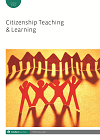
Full text loading...
 , Dagmara Szczepańska1
, Dagmara Szczepańska1 , Dominika Maison1
, Dominika Maison1
Studies carried out in different countries identify young people as the least politically engaged age cohort. Since political interest and participation are largely shaped by socialization agents, such as parents, peers and school, the objective of our research is to explore the role of each agent within the Polish context. Results of two studies, quantitative (n = 570) and qualitative (44 individual in-depth interviews), show that young Poles’ political interest and participation are indeed influenced by parents, peers and school, though the impact of each agent is related to different areas of activity. We separate those practices that have a constructive effect on political engagement from those that impact it in a destructive way. Finally, we provide a model of political socialization including the specific role of each agent and consider their potential for increasing young people’s political engagement.

Article metrics loading...

Full text loading...
References


Data & Media loading...

Publication Date:
https://doi.org/10.1386/ctl_00085_1 Published content will be available immediately after check-out or when it is released in case of a pre-order. Please make sure to be logged in to see all available purchase options.